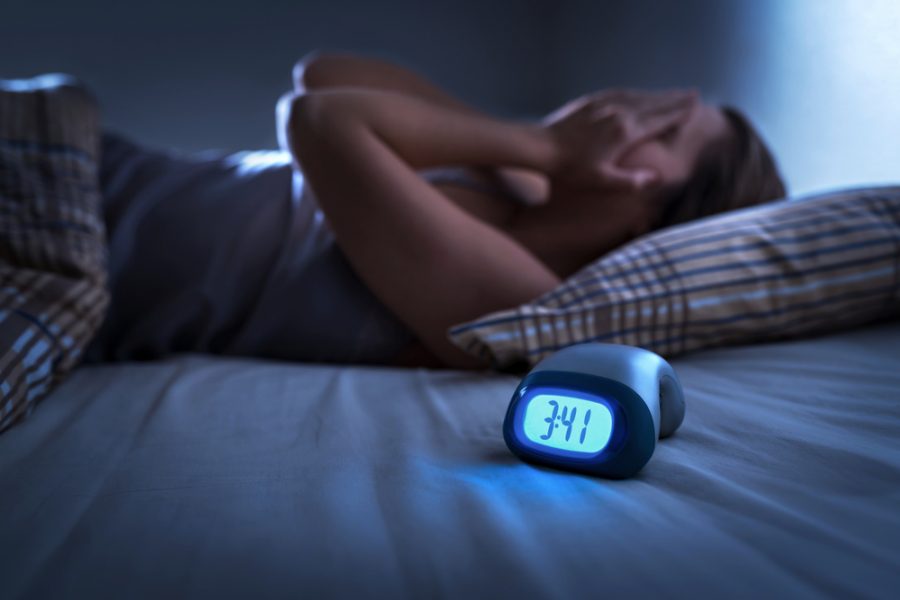<p style="text-align: justify;">Almost everybody has a night when it’s difficult to get to sleep. Minor illnesses, stress or simple things like being too warm can cause you to wake up often and feel rough in the morning. If this is just occasional and you’re otherwise in good health then it won’t do you any real harm. If it happens on more than three nights a week over a period of three months or more you may have chronic insomnia – and that’s when you need to get help.</p>
<h2 style="text-align: justify;"><strong>Causes of insomnia</strong></h2>
<p style="text-align: justify;">As many as two in five Americans suffer from insomnia in any given year, and there are lots of reasons why it happens. It can be a side effect of illness (diagnosed or undiagnosed) or a consequence of chronic pain or a disability that makes it difficult for you to sleep comfortably. It can be caused by hormone changes and it’s a particular problem for teenagers and menopausal women. It can also happen when your sleep patterns are disrupted by things like irregular shift work or long distance travel. The longer it lasts, the harder it is to fix.</p>
<h2 style="text-align: justify;"><strong>Long-term risks</strong></h2>
<p style="text-align: justify;">Over time, not getting enough sleep can cause serious damage. It increases the risk of developing depression and anxiety, weakens the immune system and places the sufferer at increased risk of <a rel="dofollow" href="https://www.heart.org/en/health-topics/consumer-healthcare/what-is-cardiovascular-disease">cardiovascular disease</a> and stroke. There’s some evidence that it makes certain types of cancer more likely to develop, and it has also been associated with neurodegenerative diseases like Alzheimer’s syndrome. All of this means that it can’t be dismissed as an inconvenience – it needs to be taken seriously.</p>
<h2 style="text-align: justify;"><strong>Environmental changes</strong></h2>
<p style="text-align: justify;">One of the simplest things you can do to decrease your insomnia risk is to change your sleeping conditions. Try adjusting the temperature and humidity levels in your bedroom. Make sure that the room is sufficiently well ventilated. Use breathable, hypoallergenic bedding. If problems persist, invest in a new mattress – if you share your bed, a memory foam one will mean that you’re bounced about less when your partner moves. Try to cut down on noise while you’re sleeping and if there’s not much you can do about this, give earplugs a try. You might also find that a sleep mask helps.</p>
<h2 style="text-align: justify;"><strong>Medical options</strong></h2>
<p style="text-align: justify;">If environmental changes don’t help, it’s time to talk to your doctor about sleep medication. There are a variety of pills available on prescription to treat insomnia but different people have different responses to them, so if the first thing you try doesn’t work, don’t give up – just try something different. You’ll find other treatments for sale online. CBD isolate powder is helpful for many people, especially where chronic pain is a factor, and you can mix it into a hot drink or small snack for consumption just before you go to bed. Because it barely contains any tetrahydrocannabinol, it won’t stimulate your mind and keep you awake the way that marijuana can.</p>
<h2 style="text-align: justify;"><strong>Complementary therapies</strong></h2>
<p style="text-align: justify;">Along with modern treatments there are some older methods that have been shown to help with sleep. Drinking a mint or chamomile brew at bedtime will help your body to relax. <a href="https://medusamagazine.com/5-greatest-benefits-of-lavender-essential-oil/">Lavender oil</a> in a hot bath or dripped onto your pillow seems to help with getting to sleep. If you avoid blue light (common from most computer screens) late at night and increase the amount of pink-toned light in your home, this will mimic the effects of a natural daylight cycle and help to create a natural sense of sleepiness. Some people also find that self-hypnosis helps them.</p>
<h2 style="text-align: justify;"><strong>Lifestyle changes</strong></h2>
<p style="text-align: justify;">Insomnia is generally made worse by excessive consumption of alcohol, smoking, and most kinds of recreational drugs (even opiates, which may feel relaxing but will disrupt your natural sleep cycle). Caffeine consumed in excess or late at night is a common contributor to the problem, and you should avoid eating heavy meals when it gets late. Don’t exercise late in the evening but make sure that you’re getting enough exercise over the course of the day – insomnia is less common in people with a good level of general fitness. If you’ve had a rough night, don’t try to sleep in to make up for it as this will disrupt your metabolism and often make the following night worse.</p>
<p style="text-align: justify;">People with insomnia often despair of getting better but that’s partly because of what lack of sleep does to the mind. Try to avoid getting stressed out about it. The chances are that one or more of the above approaches will solve your problem and let you get back to the peaceful, restorative nights of sleep that you’ve been longing for.</p>

Insomnia: What it is and What You Can do About it
